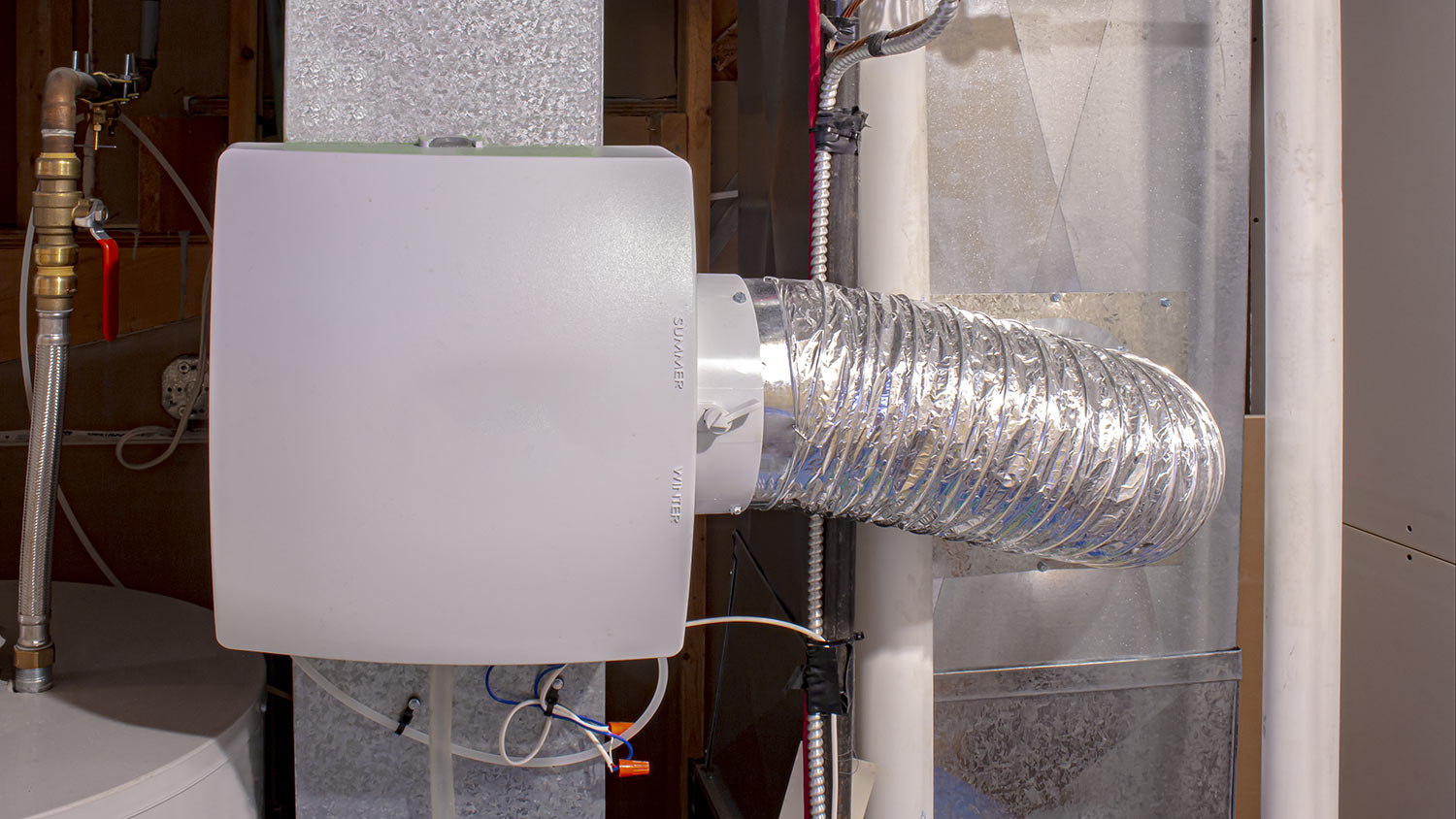
The cost of replacing an AC unit fan motor depends on warranties, labor, season, and more. This cost guide covers everything you need to know about this HVAC part.
Replacing evaporator coils costs an average of $1,350


AC evaporator coil replacement costs an average of $1,350, or between $600 and $2,000 for most homeowners.
Evaporator coil replacement costs more for larger AC units.
Material costs (i.e., the coil itself) range from $550 for a two-ton unit to $1,100 for a five-ton unit.
Installation labor adds $400 to $1,000 to your total AC coil replacement cost.
Hiring a professional AC technician is essential for your safety and ensuring the job is done properly.
This article was updated using automation technology and thoroughly reviewed for accuracy by HomeAdvisor Editor Ryan Noonan.
AC coil replacement is a crucial maintenance task that keeps your air conditioning system running smoothly. The average cost to replace an AC evaporator coil is $1,350, with an average range between $600 and $2,000 for most homeowners. Setting aside funds for this job—and calling in a licensed pro every 10 years or so—keeps the system humming and helps you dodge bigger, costlier breakdowns.
The cost of replacing your evaporator coil hinges depends on the unit’s size and location, local labor rates, and any additional repairs that may arise during the process.
Coil prices rise with your AC’s tonnage—the measure of how much heat the system can pull from your home in an hour (listed in BTUs).
Bigger units need heftier coils, so costs climb as tonnage goes up. Most homes use systems between 1.5 and 6 tons. When the new coil isn’t an exact match, your tech may have to tweak the housing, which can bump labor by another $400 to $1,000 (roughly $700 for most jobs).
| Size in Tons | Unit Cost | Average Cost Range (All-In) |
|---|---|---|
| 1.5–2 | $550 | $950–$1,550 |
| 2.5 | $700 | $1,100–$1,700 |
| 3 | $850 | $1,250–$1,850 |
| 3.5 | $950 | $1,350–$1,950 |
| 4 | $1,000 | $1,400–$2,000 |
| 5 | $1,100 | $1,500–$2,100 |
Coil style also plays a role in the final price tag. Your HVAC pro will steer you toward the design that fits your system, but the layout of your air handler ultimately calls the shots.
A-coils are the most common style and resemble the shape of a tent or triangle.
N-coils or Z-coils have a zigzag pattern like the letter N or Z.
Slab units are flat and used in horizontal applications that don’t require much space.
| Coil Style | Average Cost |
|---|---|
| A-style | $1,300 |
| N- or Z-coils | $1,550 |
| Slab units | $1,200 |
Homeowners can pick between cased and uncased coils. A cased coil costs an average of $1,000 and slides in easily because the fit is forgiving. An uncased coil averages $800, but installation is fussier since every edge must line up precisely.
Expect to pay between $400 and $1,000, on average, to hire a local HVAC pro to replace your AC evaporator coils. Safety is critical when it comes to handling air conditioning units, so hiring a local AC installation pro is essential.
No place is more important than your home, which is why HomeAdvisor connects homeowners with local pros to transform their houses into homes they love. To help homeowners prepare for their next project, HomeAdvisor provides readers with accurate cost data and follows strict editorial guidelines. After a project is complete, we survey real customers about the costs to develop the pricing data you see, so you can make the best decisions for you and your home. We pair this data with research from reputable sources, including the U.S. Bureau of Labor Statistics, academic journals, market studies, and interviews with industry experts—all to ensure our prices reflect real-world projects.
From average costs to expert advice, get all the answers you need to get your job done.

The cost of replacing an AC unit fan motor depends on warranties, labor, season, and more. This cost guide covers everything you need to know about this HVAC part.

Discover the cost of window AC installation, exploring factors like unit size, labor rates, outlet installation, accessories, and disposal fees.

Budget for AC coil cleaning costs based on factors such as cleaning frequency, coil type, cleaning method, accessibility, ongoing maintenance, and more.

Need an AC Recharge? Here’s how much it costs, what factors affect cost, and what to expect.

Budget for AC capacitor replacement costs based on factors such as the capacitor type, size, labor, potential repairs, location, season, and more.

Wondering who installs whole-house humidifiers? Hire a licensed HVAC technician. Learn what they do, other pro options, and how to hire confidently